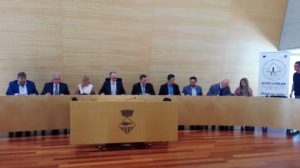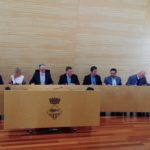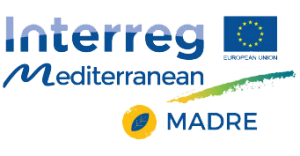09/2015
Agri-Urban is a European network for the promotion of agri-food employment in small and medium-sized cities. During the first phase of this URBACT project (September 2015 - March 2016), Baena (Spain) partnered with five European cities to initiate the network. Five additional cities joined them for the second phase (May 2016 - May 2018), including Mollet del Vallès, which is part of the Barcelona Metropolitan Area (Spain).
Contact details
E-mail : azafra@adegua.com
Facebook : https://fr-fr.facebook.com/Agri-Urban-1511099979190961/
Website : http://urbact.eu/agri-urban
Spain
Stakeholders
∙ 11 partner cities: Baena (Spain), Fundão (Portugal), Pyli (Greece), LAG Pays des Condruses (Belgium), Södertälje (Sweden), Cesena (Italy), Abergavenny (United Kingdom), Mollet del Vallès (Spain), Jelgava (Latvia), Petrinja (Croatia) and Mouans-Sartoux (France)
∙ Local stakeholders and participants in the network activities: associations, trade associations, farmers and businesses, research and training institutes
Objectives
∙ Creating jobs through an integrated approach, taking advantage of the economic, social and environmental opportunities derived from innovative ways of farming and producing food
∙ Promoting cross-learning at international level between a group of cities and other interested third parties
∙ Creating an Integrated Action Plan for each member city, covering short circuits, smart land use, business development of SMEs and public procurement
Legal framework & Budget
Agri-Urban is an URBACT project. URBACT is a European Territorial Cooperation programme aiming to foster sustainable integrated urban development in cities across Europe. The 11 partner cities signed a Joint Convention to formalise the network.Activities
Phase 1 focused on the analysis of the problem tackled, the involvement and mapping of local stakeholders, and the development of the Baseline Study. In Phase 2, each city will animate a Local Group, which will meet 8-10 times and define needs, interventions and sustainable policies for the revitalisation of the agri-food sector. The final result of this process will be consolidated in an Integrated Action Plan, which will cover 4 main themes: short circuits, smart land use and urban-rural linkages, business development of SMEs, public procurement. Transnational exchange and learning activities will seek alignment of actions and policies that impact the food system, but giving flexibility to partner cities to mainstream the outcomes to their local reality.>Innovation & Outcomes
AGRI-URBAN can powerfully contribute to its objectives since it only involves small and medium- sized cities that show strong links between the urban and the rural environment. For this reason, they can exploit the opportunities offered by rural areas to create jobs in the agri-food sector and improve the overall sustainability of their ecosystem, while injecting in their urban fabrics elements of rurality. It is an ideal category to test new strategies to reinforce the urban-rural linkage.651 814
Main obstacles & Next steps
Policymakers’ engagement is a prerequisite for the project success. Activities dedicated to elected officials will be organised to ensure the revision of municipal regulations and the allocation of appropriate resources for food-related policies. The project will also develop a stakeholders’ network (agri-net), which main missions will be to provide a permanent table of discussion, to connect stakeholders and transfer needs, to develop project proposals for regional, national and EU funding and to disseminate useful information.More on :
http://urbact.eu/agri-urban








